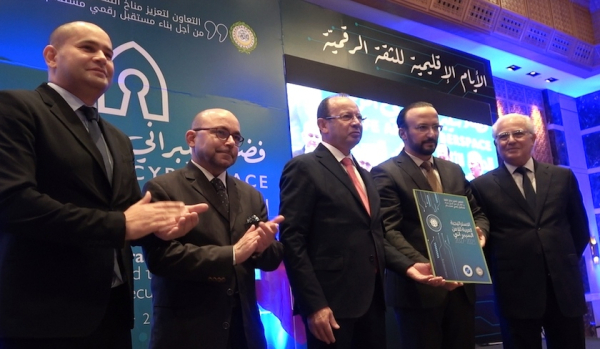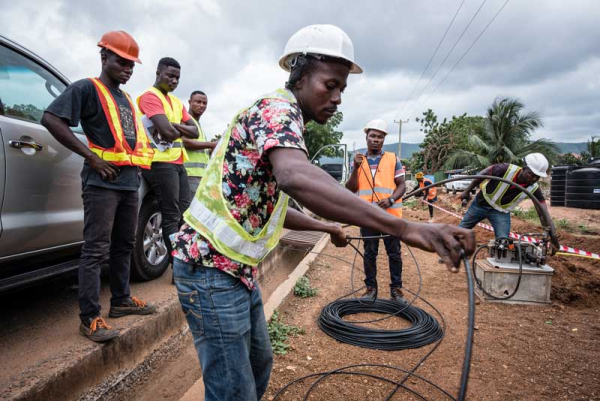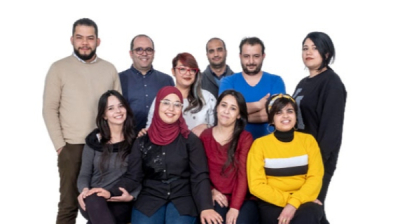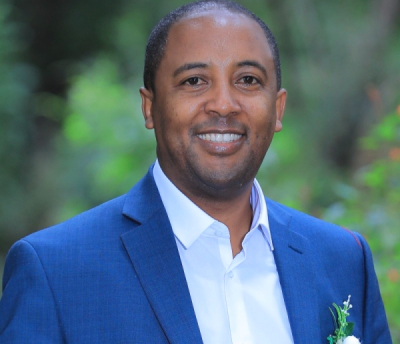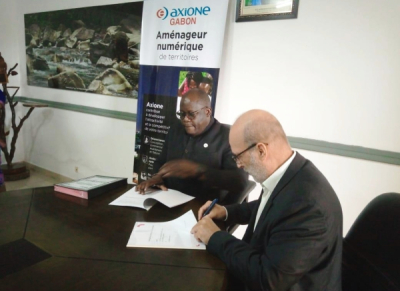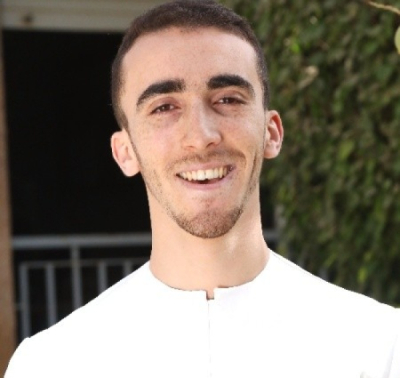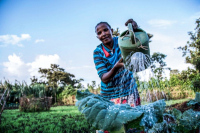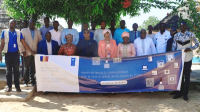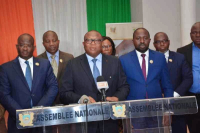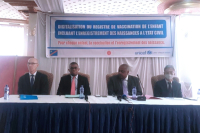Cybersecurity is now a global concern. To address cyber threats, countries are coming together to strengthen cooperation for effective actions.
Last Tuesday, the Arab Information and Communication Technologies organization (AICTO) presented its Cybersecurity strategy, on the sidelines of the "Regional Digital Trust Days" (November 29-December 1, 2022).
The strategy aims to help the 17 AICTO member countries, including 10 African countries, respond to cyber challenges and harmonize their legal frameworks in an increasingly digitalized economic environment.
For Adnane Ben Halima, Vice President in charge of Public Relations for Huawei Northern Africa, with every sector undergoing digital transformation and internet usage growing, data privacy and protection can not be assured as they should if systems reliability is not ensured. “Cybersecurity is an important prerequisite and absolute priority,” he said.
The strategy is presented a year after Arab League members and AICTO agreed to map out a common cybersecurity vision and strategy. It is developed in collaboration with experts and aims to promote joint actions and boost strategic inter-regional and global cooperation on the safety and security of ICTs.
The strategy, which will be adopted in the coming months, is part of a set of projects laid out by the AICTO’s 2023-2027 action plan that aims to spur uniform growth and close the existing cybersecurity gap within member countries.
Samira Njoya
For 2023, the Guinean government plans several projects including digitizing some public services and connecting over 300 schools and universities to the internet.
In the coming months, Guinea will record incredible advances in internet connection, Minister Ousmane Gaoual Diallo said on public radio RTG last Monday. According to the government official, the government has already invested over US$200 million to deploy 4,400 kilometers of fiber optics in the country. It is also moving to increase, to three, the number of optical cables it is connected to; to reduce telecommunications and internet costs from over GFr1.5 million to 500,000 (US$58) on average.
In recent years, the Guinean government has stepped up efforts to digitally transform the country. Several projects are underway including the national telecom company (Guinea Telecom), which is expected to launch in the first half of 2023 (according to Minister Ousmane Gaoual Diallo).
In 2023, the country also plans to digitize various administrations and public services, and connect 300 schools and universities to the internet. Last April, to facilitate the implementation of its digital projects, the country created its national digitization agency. The agency will oversee the government’s digital transformation projects and programs.
Samira Njoya
The solution was initially developed to help one of the co-founders' sister overcome dyslexia, a learning disability that can pose huge problems for children.
Sghartoon is a teletherapy platform developed by a Tunisian eponymous start-up. It helps parents and therapists detect learning difficulties, including dyslexia in children, and turn them into "superpowers" through educational games.
Through its mobile app -available for Android and iOS devices, users can register for its services by creating accounts either as parents, therapists, or even a child.
The child can then take an online exam to detect the presence of a learning disability. If a disability is detected, parents and therapists can monitor children’s progress thanks to the games embedded in the platform.
Sghartoon also offers parents and therapists access to a digital game library, a patient management tool with the results of various sessions, and a calendar management tool.
Its Android app has already been downloaded more than a thousand times on PlayStore. In 2020, the startup was among the eight ventures selected for the fifth cohort of the Flat6Labs accelerator, winning a check of US$65,000. The following year, it was one of the eleven African startups that won the Migration Entrepreneurship Prize. The financial supports allowed it to accelerate its growth in the Tunisian market and consider a possible expansion to other countries.
Adoni Conrad Quenum
He is an investment advisor with over 20 years of experience. As one of the initiators and organizers of a prestigious African fintech-focused summit, he has received several awards celebrating his impactful contributions.
Zekarias Amsalu (photo) is an Ethiopian investor, ACCA Chartered Accountant, and an active figure in the African fintech sector. He is also one of the co-founders and co-organizers of the Africa Fintech Summit, “a vibrant community of fintech entrepreneurs, investors, regulators, and everyone in between working together to solve the largest financial issues.”
The summit, launched in 2018, is held twice a year (once in Washington, D.C., and once in a selected African country).
“The Africa Fintech Summit is an event that gathers leaders, investors, regulators, think tanks, business leaders, banks, government agencies, and other architects of the ecosystem to foster collaboration, raise capital, and explore strategies to expand the reach of financial service delivery in Africa. Each April, one AFTS is held on the sidelines of the World Bank's Spring Meetings in Washington, D.C., while another is held in a selected African country,” Zekarias told Digital Africa, in April 2022, while explaining the concept.
The co-founder is also the founder and CEO of IBEX Frontier LLC, an investment consultancy firm focused on emerging markets and preferably in Ethiopia. He was also an investor for the 2019 Cohort of the NextGen Africa program. A few years earlier, in 2002, he founded Future Proof Accountancy, an accountancy firm providing its services to Ethiopian businesses and entrepreneurs.
The experienced investor kickstarted his professional career in 1997 when he joined the Addis-Ababa-based Dashen Bank S.C as the head office accountant. In 1998, he was hired by Shell as Treasurer and East Africa Hub Credit Manager. From 2003 to 2006, he was the financial accountant of Prudential Financial, in London, UK. He then worked for Westminster Electrical as a financial manager between 2006 and 2017. At the same time, Zekarias Amsalu was a management accountant for Godrej Consumer Products Ltd from 2007 to 2008. From 2016 to 2017, he also worked for Asoko Insight where he was the Operations Manager in Ethiopia.
Currently, he is the advisory board member of the VC firm Afrinet Capital. His impactful contributions have earned him several awards. In 2018, he was named one of the top 100 Most Influential Persons of African Descent (MIPAD) Under 40 in the Business/Entrepreneurship category. Forbes also showcased him as an investment connector and, he also won the Outstanding Trade Avocate Award at the Africa Trade and Investment Summit.
Melchior Koba
The move aims at ensuring the smooth operations of the park, which is a natural sanctuary for large mammals, in the digital age.
Yesterday, the Gabonese agency for national parks ANPN and fiber optic operator Axione signed a sponsorship agreement to equip the Lopé National Park with high-speed internet.
The agreement aims to connect the Lopé National Park to fiber optic, allowing the park’s scientific teams to instantly analyze the data collected by the connected objects (plotters, wildlife observation cameras, video protection, etc.).
"We are really pleased and proud to support the actions of the Lopé Nature Reserve, which works daily to protect biodiversity. Thanks to the expertise of Axione Gabon's teams, we are installing a fiber optic network in the park. This fiber optic connectivity will significantly improve the possibilities given to researchers, scientists, or students to transfer and analyze the collected data, which are necessary to observe and preserve the wildlife," said Jacques Beauvois (photo, right) General Manager of Axione Gabon.
The Lopé National Park is on the United Nations Educational, Scientific and Cultural Organization (UNESCO) World Heritage List since 2007. It is one of the richest in Gabon and a priority for the country's government. It is particularly important because it hosts archaeological sites dating back 620,000 to 850,000 years. These are the oldest traces of human life in Central Africa to date. It is therefore important to connect its offices and training center to the national high-speed internet backbone.
Axiome will supervise the fiber optic installation works, supply, connect, and commission equipment, under this agreement, which is the result of three years of cooperation between several public institutions and Axione Group.
Samira Njoya
After his finance courses, he worked for investment companies in France and Africa. He later chose to dynamise the African education sector with an edtech that has already earned investors’ confidence.
Hamza Faiz (photo) is a Moroccan finance expert and entrepreneur. In 2020, he co-founded Smartprof, a marketplace whose mission is to find the right tutor for every student.
The startup based in Casablanca, Morocco, connects school-aged students with qualified teachers for individual or group tutoring. It aims to become the leading one-stop tutoring platform in North and West Africa, which represent a multi-billion-dollar market when combined.
"We launched Smartprof after noticing that the private educational system was failing in Morocco. We were convinced that every student needs some kind of private assistance to overcome the challenges faced in schools. The private tutoring market is very fragmented; finding a tutor is a nightmare. Additionally, there’s no visibility on pricing, so there was a real need for a tech product that creates a great tutoring experience," Hamza Faiz explained in September 2022.
Earlier in November 2022, his startup had raised pre-seed funding of US$110,000 from Plug and Play, UM6P Ventures, and several angel investors. The funds were provided to help Smartprof expand further in Morocco and West Africa and hire additional developers to improve the quality of the platform.
In July 2022, the startup had already raised US$50,000 for its participation in the third cohort of the Mohamed VI Polytechnic University's Startgate and the Plug and Play Morocco startup competition. Hamza Faiz, the co-founder, and CEO who made it possible is a Sciences Po graduate. He is also a graduate of the University of Warwick, UK.
In 2012, he was an engineering assistant at Georgetown University’s ISIS Center. The following year, he spent two months working as the director’s assistant at the Moroccan National Human Development Initiative. From 2013 to 2014, he was the Manager, market searcher, and strategic adviser of Cœur de Couleur, a defunct wholesaler of hygienic and decorative items. After a summer internship at Casablanca Stock Exchange, he was hired by Canal + as a financial controller in 2015.
The following year, he joined Societe Generale Corporate and Investment Banking for an internship as a Mergers and acquisitions and equity capital markets analyst. In 2017, he also interned as an investment associate at AFIG FUNDS in Dakar. Then, in 2018, he joined BNP Paribas as an M&A analyst before being hired by food delivery company Deliveroo as an operations strategy associate in May 2019. In October 2019, the food delivery company appointed him core performance manager, a position he held until October 2021.
Melchior Koba
In African countries, small-scale farmers contribute a significant portion of the food supply. They are nevertheless affected by several problems including lack of funding, post-harvest, and yield losses. In Ethiopia, a tech entrepreneur has decided to tackle the issue of yield loss by leveraging digital technologies.
Lersha is a digital solution developed by an Ethiopian eponymous startup. It allows access to agricultural inputs for farmers and helps them hire mechanization services and request dynamic agro-climatic advice.
Smallholder farmers can access its services via its mobile app and call center. Once farmers download its app, they need to register their accounts by providing some personal information. The startup has also dispatched agents to familiarize farmers with the tools and services it offers. Via those agents, the farmers can also access its services.
Currently, Lersha has identified more than 44,160 farmers. It has deployed over 88 agents to manage those farmers and added more than 172 mechanization service providers to its database. Its Android app has been downloaded more than 500 times according to stats shown by PlayStore, the official Android Appstore.
In 2022, Lersha was among the eight startups selected for the Global System for Mobile Communications (GSMA) Innovation Fund which aims to support solutions that boost low-income and vulnerable communities’ capacity to adapt to, anticipate or absorb climate-related shocks or stresses.
Adoni Conrad Quenum
In Africa, countries are accelerating the digitation of public services. Every sector is undergoing reforms to make the services accessible to everyone via, digital tools.
The Chadian Ministry of Justice and the United Nations Development Program (UNDP) organized a workshop in Koundoul, South of Ndjamena last November 24-26. The workshop was organized to review the country’s judicial system and lay the foundations for its digitization.
For Louise Bourkou Ngaradoumri, Secretary of State for Justice and Human Rights, this project is of great importance to Chad. "Digital technologies appear like essential tools to serve justice as we are far from one another. By using digital tools, we can identify problems as soon as possible,” she said.
The workshop comes after an experience-sharing session organized by Chad last August, with representatives of the Morrocan and Rwandan judicial systems as participants.
The workshop and the experience-sharing session are both parts of the process initiated by the government a few years ago to digitize the justice system. The process is supported by the UNDP in the framework of its project to support the penal system and institutions). Last June, under that same project, the institution handed computers and office equipment to the Ministry of Justice to improve access to quality justice.
According to Justice Minister Mahamat Ahmat Alhabo, in the digital age, only those who keep up to date with the advances can find a place in the justice system. "Not adapting [to the advances] means self-exclusion because, in Chad, the justice system will be digitalized to rid it of its evils,” he said.
Samira Njoya
Cybercrime is gaining ground in Africa. Sub-Saharan Africa is presented as a region particularly vulnerable to the issue of online scams and large-scale cyberattacks on the rise. Nevertheless, industry players are moving to provide adequate responses.
Last week, the Ivorian parliament approved the draft law amending articles 17, 33, 58, 60, 62, and 66 of the law N° 2013-451 of January 19, 2013, on the fight against cybercrime.
According to Minister of Communications Amadou Coulibaly (Photo, center), who defended the draft law before the parliament, it was necessary to overhaul the rules punishing cybercrime in an environment where the number of such acts is ever-rising with the rise of social media.
Like its African peers, Côte d'Ivoire is confronted by the scourge of cybercrime. The most recurrent acts are sextortion, sexual harassment, identity, and payment fraud.
In 2011, the Ivorian government established a Platform for the Fight against Cybercrime (PLCC). In March 2019, it ratified the Budapest Convention on Cybercrime, which allowed it to benefit from international collaboration in its fight for greater effectiveness. About two years later, it adopted a new strategy to better secure its cyberspace and accelerate its digital transformation to become the African leader in cybersecurity
The amended articles increase the maximum sentences for cyber acts that violate human dignity, honor, and intellectual property rights as well as any illegal act carried out using ICT tools. For example, Article 17 consecrates a one to six years prison sentence and between 20 to 40 million fine for anyone who publishes or distributes child pornography.
Samira Njoya
The support is the result of the agreement signed by the Japanese embassy in Congo and local NGOs in March 2017. It is in line with the government’s ambition to ensure universal health coverage.
Last Friday, DR Congo launched a UNICEF-implemented digital health support project. The project, funded to the tune of US$2.5 million by Japan, aims to develop and deploy a digital vaccination record integrating a module to register births in the Kinshasa, Kongo-Central, Kasaï-Central, and Haut-Katanga provinces. The financial support is provided in the framework of an agreement signed by local NGOs and the Japanese embassy to DRC in March 2017.
According to DRC Minister of Public Health Jean-Jacques Mbungani, the project is of paramount importance because it will help improve the immunization and birth registration rates and also provide health staff and decision-makers with accurate and real-time information on immunization.
Over the past five years, DRC has improved its immunization rate to 85%, UNICEF says. However, the country still faces recurrent epidemics of vaccine-preventable diseases, including measles, polio, yellow fever, and meningitis. Also, the international organization informs that four out of 10 are registered in the civil registration database in the country; 38% of the children under 1 are registered against 40% for those under 5.
The digital health project aims to improve those figures and ensure broader health coverage by providing an efficient and reliable civil registration system and vital statistics.
Thanks to the digital record system, health personnel will be able to, among other things, monitor the status of birth registration and vaccinations of each child by recording this information in a national database. This system will allow for individualized follow-up and ensure that every child receives the necessary vaccines even if the latter is moved to a different region. "Ultimately, this will greatly improve the accuracy of administrative data to better estimate immunization coverage, including routine immunization and Covid-19," said Hiro Minami, Japan’s ambassador to the Democratic Republic of Congo.
Samira Njoya
More...
With the technological revolution underway, Africa needs to build its tech talent pool. The first step in that endeavor is to teach the youth how to code.
EaziCode is a digital platform developed by a South African eponymous startup. It connects young people who want to learn to code with experienced tutors.
"We were able to identify in our research that most local curriculums for primary and secondary education in South Africa do not have programming as a taught fundamental skill. Within an increasingly digital world, our goal is to bridge this gap and enable students to learn to program and build creative products at a much younger age," said EaziCode founder Thato Tshukudu to explain why the platform was launched.
Most of the courses offered feature a variety of fun programming activities designed to stimulate creativity. The curriculum is inspired by Google and the tutors are computer science students from South Africa's top universities trained to deliver the courses pedagogically.
EaziCode offers free and paid sessions. About 20 learners are taken in monthly for the paid sessions against some 30 learners for the free sessions monthly. At the end of their training, every learner receives a completion certificate.
According to Thato Tshukudu, the startup is mainly focused on the South African market but it plans to extend to other African countries. "We currently have two paid courses, introduction to web development and a Scratch course, which we have seen great financial success with. Due to our business model, we have very few operating expenses and thus it is easy for us to make a profit. We do believe that we are still in the early stages of our growth but with the current success of all our courses, potential partnerships shortly as well as our focus on growing our selection of courses, we hope to see an exponential increase in turnover," he indicated.
Adoni Conrad Quenum
The entrepreneur has over 10 years of professional experience in the African supply chain industry. Through his haulage company, Haul27, he wants to address the supply and demand imbalance in the current logistics ecosystem.
Sehinde Afolayan (photo) is a Nigerian entrepreneur committed to improving the African logistics sector. He is the co-founder and CEO of Haul247, a technology platform that aims to bridge the growing gap in access to trucks and warehouses in Africa.
Through Haul247 -founded in 2020, he connects businesses to transportation and warehousing services. The tech platform manages companies’ end-to-end logistics to help them reduce costs and save time. It aims to be the go-to support for businesses in Africa.
"Most companies cannot accurately predict and forecast since different vendors handle transportation and warehousing needs. This makes it hard for them to control, distribute and plan their logistics requirements effectively. […]In response to this, Haul247 was birthed to be the “Airbnb” for trucks and warehouses in Africa,” Sehinde Afolayan explained in September 2022.
According to Nigerian media, “Haul247’s value proposition is simple- a unique platform offering opportunities for clients to transport and store their goods in one logistics ecosystem.” The platform has already integrated fourteen fast-moving consumer goods companies and moved more than 31,530,900 shipments. It has more than 151,000 square feet of warehouse space available in multiple locations.
Thanks to Haul247, Sehinde Afolayan became one of the beneficiaries of the Google Black Founders Fund 2022. The entrepreneur founded his first firm in 2007. Called Afolayan Farms, the firm specialized in the production of day-old chicks, catfish, and table eggs and later extended its services to commercial hatchery and processing.
In 2009, its founder joined Davton8020 Consulting Company as a business development executive. From 2012 to 2020, he officiated as the managing partner of B2B commodities trading company Astem International Company Ltd. Concurrently, in 2015, he pursued an MBA Summer internship as a product manager at Airtel Nigeria.
Melchior Koba
The country wants to position itself as the reference in digitization in West Africa and leverage ICTs for efficient socio-economic development.
Beninese Digital Minister Aurelie Adam Soulé Zoumarou (photo) recently defended her Ministry’s 2023 before the parliament. The projects included in the XOF31 billion (US$49.2 million) budget include high-impact digital projects and reforms that will benefit the whole country.
According to the government official, the projects include the extension of connectivity to every region -including rural areas- to accelerate the digitization of the country’s administration. They also include the improvement of digital use and confidence and actions to make communes more attractive with digital transformation. Another project is the modernization of Benin’s media to make it more attractive.
The budget also plans for the development of new training curricula to enhance the training offered by the public school for digital professions as well as the development and promotion of artificial intelligence and data management applications useful to national programs and finally the continuation of the Smart Gouv project.
The 2023 budget is 23.57% higher than the XOF24.252 billion Minister Zoumarou presented before the parliament for 2022. According to the official, the 2023 budget is higher because the country needs to pursue and enhance some of the projects launched in 2022. Those projects include the digitization of public administration and the extensions of e-services in every sector.
Samira Njoya
The partnership aims to boost the development of the food and beverage sector in Egypt’s digital economy, in line with the country's Vision 2030.
Last Tuesday, restaurant management solution developer Foodics and fintech startup Paymob signed a partnership agreement to empower the food and beverage sector in Egypt.
The partnership aims to combine Foodics' restaurant management system (RMS) with Paymob's point-of-sale (POS) devices, creating a seamless end-to-end solution for restaurateurs and their customers.
"Tech enablement and the digital economy are critical factors for the acceleration of the F&B industry’s growth. By bringing Foodics and Paymob together, two regional technology powerhouses, this will serve to modernize the F&B sector in Egypt and advance the shift to cashless payments, fueling both growth and digital transformation,"said Belal Zahran (photo, left), Foodics country manager in Egypt.
In Egypt, the food and beverage industry is a key facet of the economy. The country’s 104 million population represents a huge domestic market but, it is also the largest market in the MENA region. According to the "Food & Beverage Market Size, Share, Growth Prospects and Opportunities 2020-2026" study, competition will likely intensify in the Egyptian food and beverage sector with emerging applications and an expanded product portfolio.
Through the partnership, the two regional tech powerhouses want to build the first wireless backend API integration for the Egyptian F&B sector. The collaboration will enable Foodics restaurants to accept all types of card payments using Paymob's point-of-sale devices. This will solve two major issues for restaurants, namely automating the reconciliation and payment processes to provide faster order processing and error-free, frictionless payment experiences.
Samira Njoya


